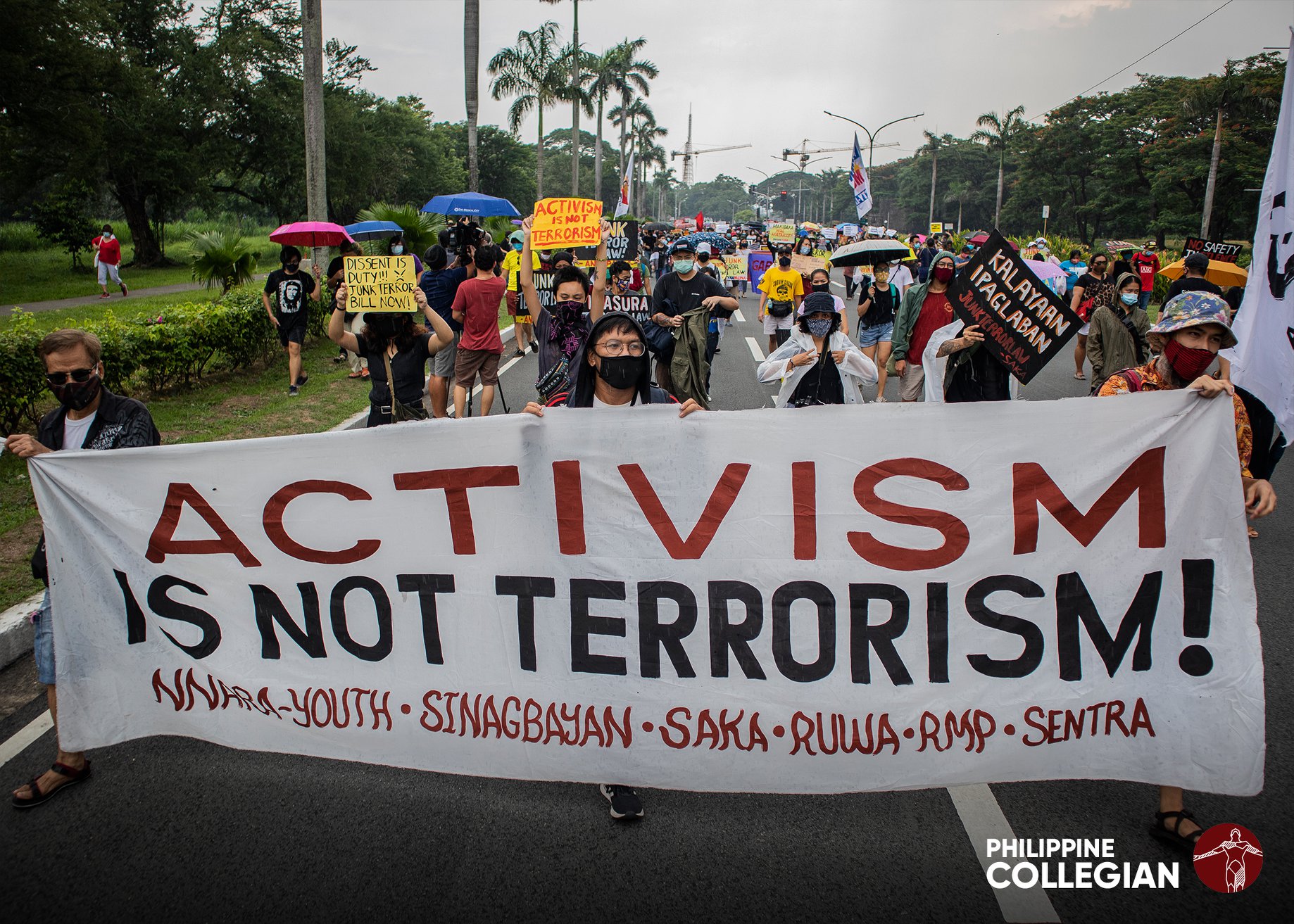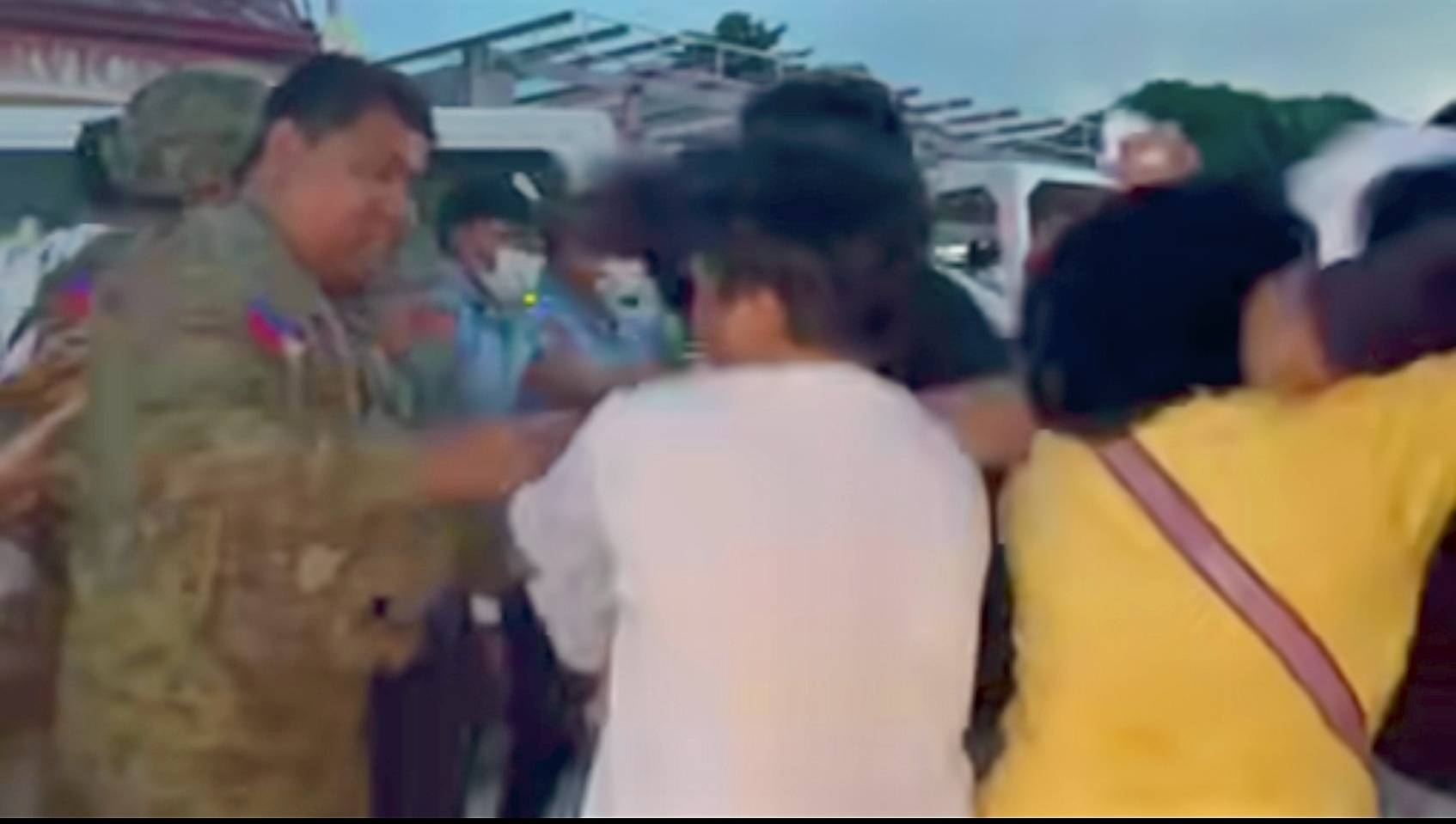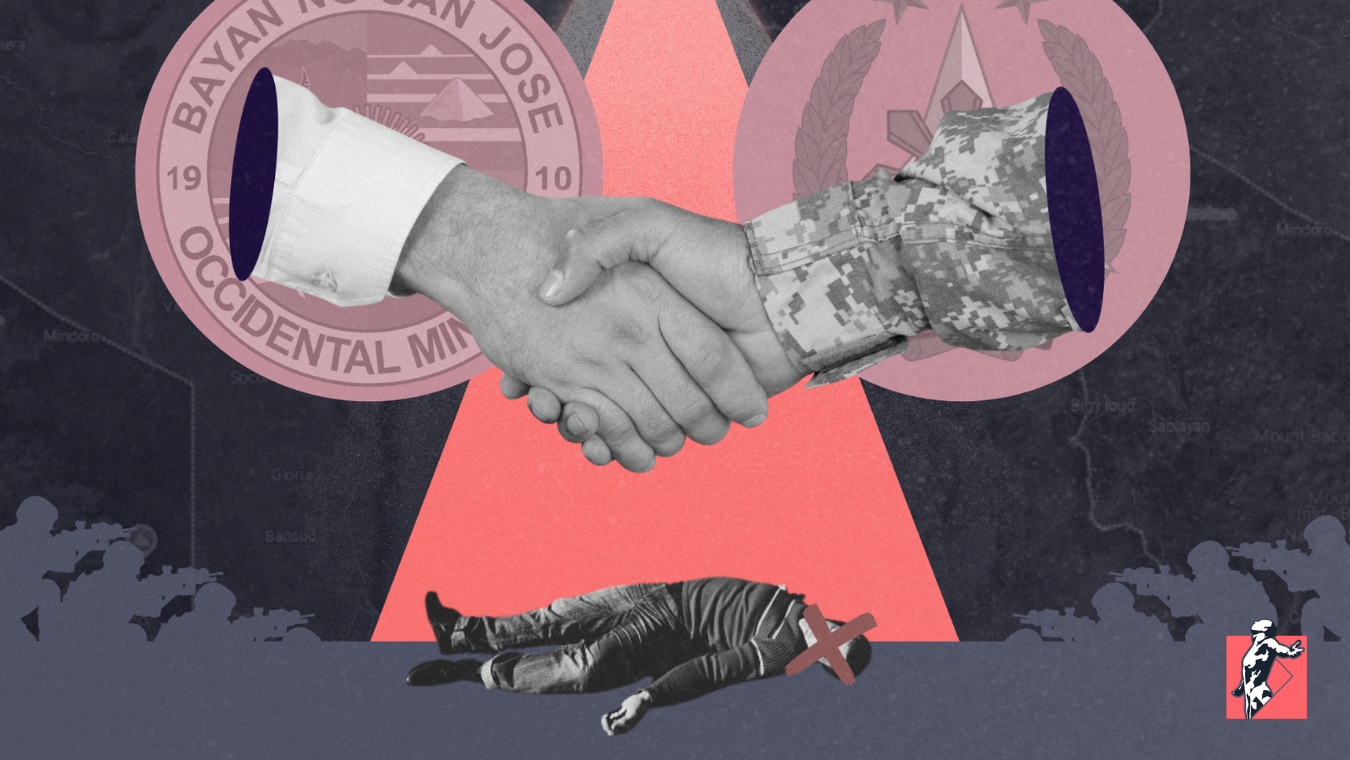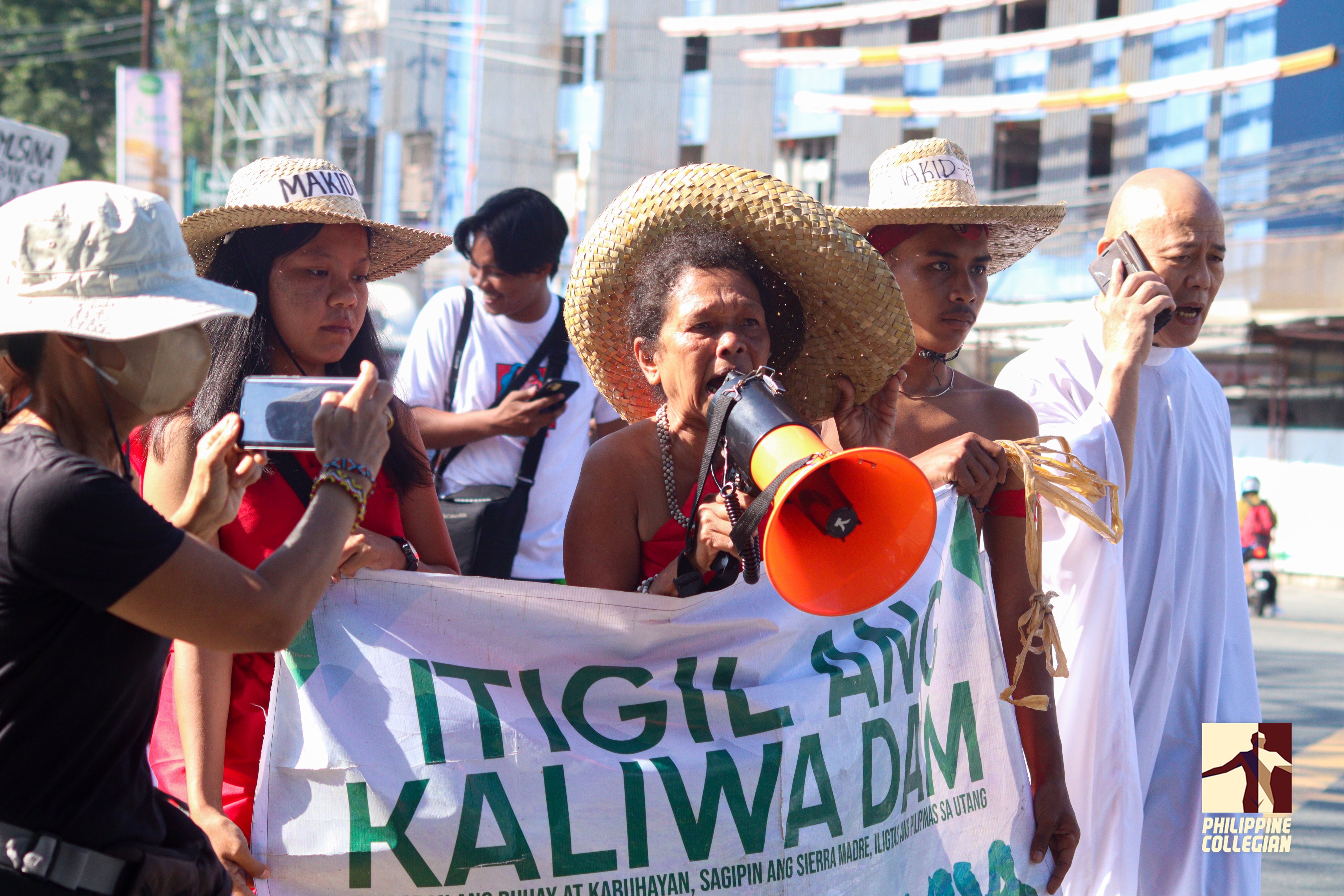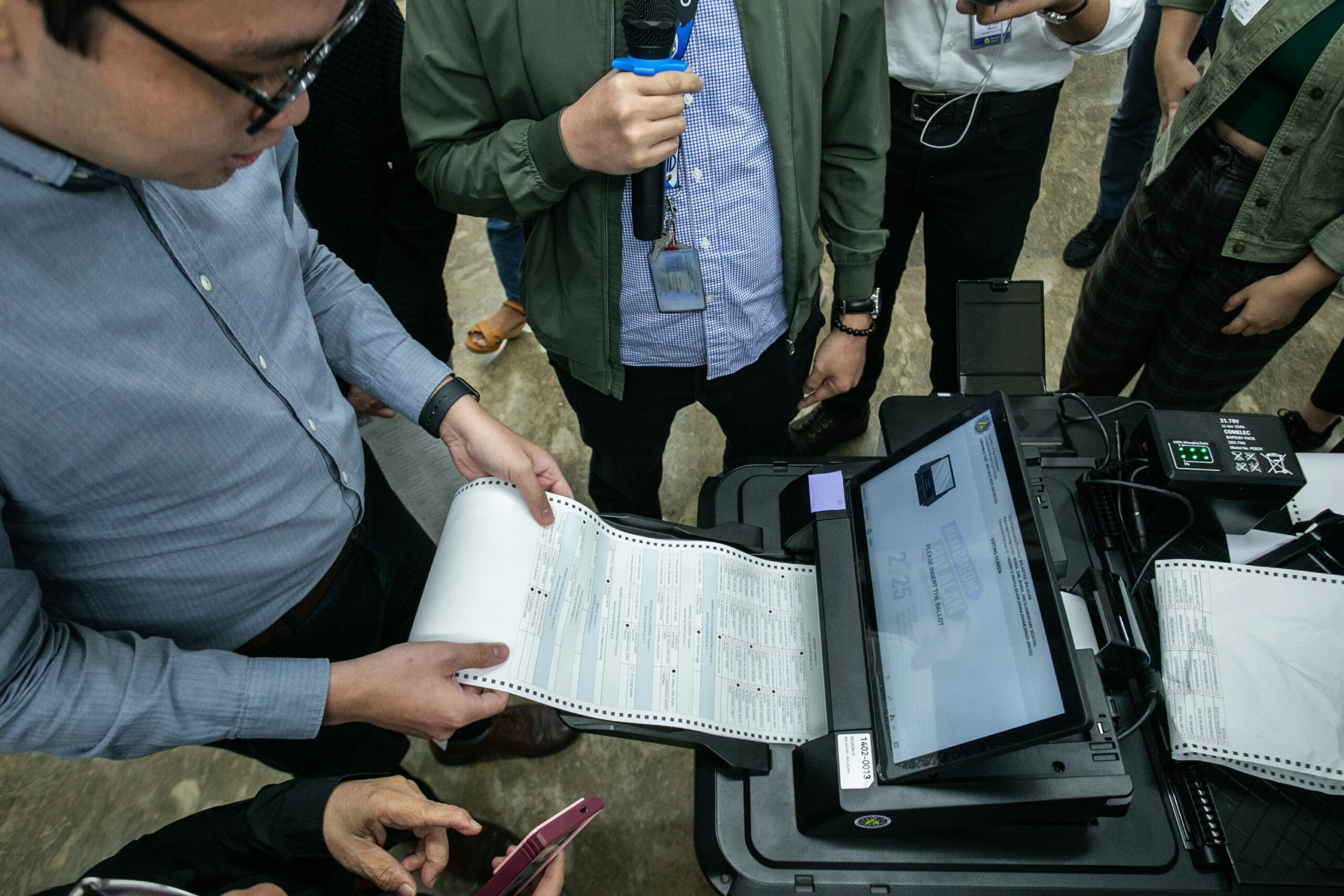The Supreme Court on Tuesday largely upheld the controversial Anti-Terrorism Law, affirming the government’s vast surveillance powers over whomever the state suspects to be terrorists, according to an advisory the court released Thursday morning.
Only a phrase in Section 4, which defined the exceptions to terrorism, and a provision in Section 25, which adopted terror designation criteria of the United Nations (UN), were voided. The justices voted 12-3 and 9-6 on the issues with Section 4 and Section 25, respectively.
Banking mostly on the overbroad definition of terrorism, the court struck down a qualifier in Section 4 that set the exceptions to the definition of terrorism.
According to Section 4, any protest action or advocacy is considered a terrorist act if it is “intended to cause death or serious physical harm to a person, to endanger a person's life, or to create a serious risk to public safety." This phrase is now invalid.
Petitioners have assailed Section 4 over its wide definition of terrorism, contrary to the specific acts of terrorism that the now-repealed 2007 Human Security Act had enumerated. Advocates calling for the junking of the anti-terrorism law feared that people’s constitutionally protected rights to express dissent may now be considered terroristic.
“In seeking to stamp out the evil of so-called ‘terrorism,’ the statute seeks to enfeeble the democratic structures of the constitution, such that its libertarian guarantees devolve into mere husks of hortatory rhetoric,” read part of the petition filed by various progressive leaders and groups.
The petitioners also assailed Section 25 for giving the Anti-Terrorism Council (ATC), a group consisting mostly of cabinet officials, the power to tag terrorists without judicial hearings or without seeking first the side of the group or individual designated as terrorist.
While this provision was largely upheld, the ATC's adoption of the criteria for terror designation by the UN Security Council is unconstitutional, according to the court. But the advisory has not disclosed the tribunal’s reason for voiding only this part of Section 25.
The court’s decision was highly consequential as it essentially gave the state the green light to wiretap and detain individuals suspected of committing terrorism without any warrant.
The decision also deemed Section 9 valid. The section defined “incitement to commit terrorism” as encouraging others to do terror acts through speeches, writings, and banners, among others, which the petitioners saw as violative of the right to freedom of expression. Violators under that section could face up to 12 years of jail time.
The Supreme Court deliberated on 37 petitions challenging the law, the first filed less than 24 hours after President Rodrigo Duterte enacted the measure. Oral arguments on the petitions began on February 2, which stretched until May due to COVID-related lockdowns.
The law’s passage last year came at a time of intensifying state-sponsored crackdown on activists and dissenters. A mere week after the law went into effect on July 18, 2020, police had already confiscated copies of community newspaper Pinoy Weekly in Bulacan for their being “illegal” and “[teaching] the people to fight the government.”
Even before the implementing rules and regulations of the law were published, two Aetas had been charged for violating Section 4 of the law. Japer Gurung and Junior Ramos had allegedly killed a military officer during an encounter between the New People’s Army and the Philippine Army in Zambales.
It was only in July this year when an Olongapo City court judge acquitted Gurung and Ramos. The judge said that the military’s testimonies about Gurung and Ramos’s presence at the “crime scene” had inconsistencies. The lower court did not determine the constitutionality of the Anti-Terror Law.
In a statement, the National Union of Peoples’ Lawyers (NUPL) said that they intend to file a motion for reconsideration of the Supreme Court’s decision. The NUPL represented some of the petitioners in the oral arguments.
“While we are glad and assured that the court mainly struck down the qualifier in Section 4 … we regret that all the rest of the perilous provisions like other forms of designation, warrantless arrest, prolonged detention, freezing of assets, proscription, definitions of incitement, recruitment, membership, material support, remain in the books, for now,” Edre Olalia, NUPL president, said. “We will not allow the dying of the flickering light of our basic rights.” ●
